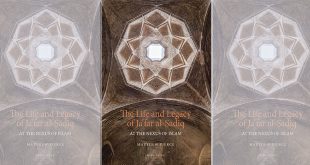Is there any authenticated tradition which state that the Prophet (SAW) was a Prophet at birth and not at the age of 40?
The prophethood of the Prophet of Islam (S) can be considered as having two aspects:
1. The first aspect of prophethood is tantamount to prophetic mission and the beginning of a procedure which involved promulgation and propagation of the religion as well as the establishment of the Islamic society. In this aspect of the prophethood, the Prophet of Islam (S) was appointed as prophet in Makkah and specifically in Hira Cave when he was only forty years old. He lived for 23 years as prophet and then he departed at the age of 63.[1]
2. The second aspect involves the spiritual status of the Prophet (S) since he was an intermediary between God and His creation. According to some reports, Prophet Muhammad (S) enjoyed the status of prophethood, not just from the time of childhood but before the creation of mankind. It has been reported that the Prophet (S) said:
«کُنْتُ نَبِیّاً وَ آدَمُ بَیْنَ الْمَاءِ وَ الطِّین»
“I was a prophet while Adam was between water and clay.”[2]
That is to say the Prophet (S) was a prophet when Adam had not yet been created. This hadith has also been narrated in Sunni sources with little variation:
«کُنْتُ نَبِیًّا وَ آدَمُ بَیْنَ الرُّوحِ وَ الْجَسَدِ»
“I was a prophet when Adam was between the soul and body.”[3]
In any case, having the status of prophethood from early childhood is not surprising about the greatest prophet of human history. That is because some of the earlier prophets also enjoyed the like of such a feature. For example, Prophet Jesus (AS) talked to his mother from the time of his birth consoling her and giving her solace.[4] He then talked to people and introduced himself as God”s servant and prophet.[5] It has been said that God, the Almighty, perfected Jesus” intellect in his childhood and appointed him prophet and sent him to people at the same time. It was due, mainly, to his perfect intellect that he became duty-bound (mukallaf) at the time of his childhood.[6]
Imam Ali (AS) also says about the Prophet”s childhood: “From the time of his weaning, Allah had put a mighty angel with him to take him along the path of high character and good behavior through day and night.”[7]
This saying of the Imam (AS) indicates that the Holy Prophet (S) was in communion with the spiritual realm from infanthood, just as we also believe that the Prophet (S) was infallible from his birth[8] and he enjoyed the status of imamte and wilayah.[9] It is not far from truth that the Prophet (S) had these positions from the very beginning of creation rather before the creation of light but his role as a prophet amongst the people began at the age of forty.
—————————————————————————————————–
References
[1] See: The Duration of the Prophethood of the Arch-prophets 45253.
[2] Ibn Shahrashub Mazandarani, Manaqib Aal Abi Talib (A.S), vol.1, p.214, Qom, Allamah, first edition, 1379 A.H.
[3] Khawsti Abasi, Abu Bakr bin Abi Shaybah, Al-Kitab al-Musannaf fi al-Ahadith wa al-Athar, vol.7, p.329, Reyadh, Maktabat al-Rosh, first edition, 1409 A.H; Ajori Baghdadi, Muhammad bin al-Husain al-Shari”ah, vol.3, p.1407, Reyadh, Dar al-Watan, second edition, 1420 A.H.
[4] Quran, Maryam: 24.
[5] Quran, Maryam:30
[6] Tabarsi, Fazl bin Hasan, Majma al-Bayan fi Tafsir al-Qur”an, vol.6, p.790 – 791, Tehran, Nasir Khosro, 3rd edition, 1372 (Persian calendar).
[7] «وَ لَقَدْ قَرَنَ اللهُ بِهِ مِنْ لَدُنْ أَنْ کَانَ فَطِیماً أَعْظَمَ مَلَکٍ مِنْ مَلَائِکَتِهِ یَسْلُکُ بِهِ طَرِیقَ الْمَکَارِمِ وَ مَحَاسِنَ أَخْلَاقِ الْعَالَمِ لَیْلَهُ وَ نَهَارَه» Sayyid Razi, Muhammad bin Hussein, Nahjul Balaghah, researcher, Subhi Saleh, p.300, Qom, Hijrat Publications, first edition, 1414 A.H
[8] See: Manifestations of the Infallible 1749.
[9] See Imamate at Childhood Age 176.
Source: islamquest
 Ijtihad Network Being Wise and Faithful Muslim in the Contemporary World
Ijtihad Network Being Wise and Faithful Muslim in the Contemporary World
